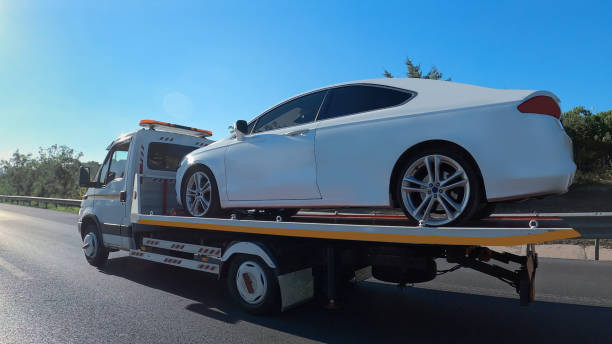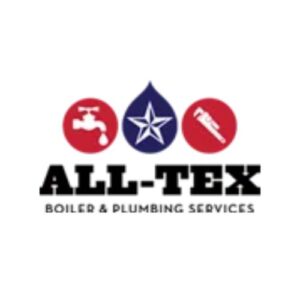Car towing is a critical aspect of roadside assistance that requires precision, awareness, and proper technique to ensure both the safety of the vehicle and everyone on the road. While it may seem straightforward, towing a car—whether it’s a simple tow to the nearest repair shop or a long-distance haul—comes with potential risks if not executed correctly. From understanding weight distribution to using the proper towing equipment, safety should always be a top priority.
At Segura’s Towing, we’ve seen countless situations where simple errors during towing resulted in costly damages or dangerous scenarios. That’s why we believe in educating drivers about best practices, not just to protect vehicles, but also to enhance road safety for all.
Why Car Towing Isn’t Just for the Pros
Many drivers assume that towing is strictly the domain of professionals. While it’s true that towing specialists have the training and equipment to handle virtually any situation, there are times when everyday drivers need to perform emergency towing themselves. This might be the case during breakdowns in remote areas, while moving vehicles short distances, or assisting a friend or family member.
However, towing a car improperly can lead to problems such as transmission damage, overheating, or even complete detachment while driving. That’s why knowing essential auto towing safety tips can empower you to act with confidence while minimizing risks.
Inspect Equipment Before Towing
Before starting any towing process, it is vital to inspect all the towing equipment. Whether you’re using a tow dolly, flatbed trailer, or a simple tow rope, check for wear and tear, secure connections, and proper attachment points. A broken strap or a damaged hitch can lead to an accident. Always make sure your tow hitch and ball mount are rated for the weight you plan to haul.
Even if you’re calling a professional towing company, it’s smart to observe the equipment being used. Trustworthy companies like Segura’s Towing always inspect their equipment thoroughly before use, which is an essential component of professional-grade service.
Understand the Towing Capacity of Your Vehicle
One of the most overlooked safety issues during car towing is towing capacity. Every vehicle has a manufacturer-specified towing capacity that should never be exceeded. Overloading your vehicle can cause brake failure, engine strain, and damage to the transmission. Check your owner’s manual or manufacturer’s website to confirm your vehicle’s limits before attempting to tow another car.
Towing beyond your vehicle’s capacity can also lead to serious legal consequences if it results in an accident. Knowing and adhering to your vehicle’s specifications is an essential step in safe and legal.
Secure the Load Properly
Once your vehicle is hooked up, you must ensure that it’s securely attached. Improperly secured vehicles are one of the most common causes of towing accidents. Make sure chains and straps are tightly fastened and crisscrossed under the tow bar. Double-check that the emergency brake of the towed vehicle is off and the car is in neutral (for manual transmissions) or in park (for certain automatic transmission vehicles, depending on manufacturer recommendations).
Safety chains should never be overlooked. They provide a critical backup in case the primary towing connection fails, helping to keep both vehicles aligned and under control.
Drive with Extra Caution While Towing
Driving a vehicle that’s towing another car is dramatically different from normal driving. Your braking distances increase, your turning radius is larger, and your vehicle’s acceleration becomes slower. To stay safe:
- Avoid sudden braking and sharp turns
- Use your mirrors frequently to monitor the towed vehicle
- Keep a larger following distance than usual
- Drive at slower speeds, especially around curves and in poor weather conditions
When possible, stick to the right lane and use hazard lights in areas of low visibility. Signal your intentions well in advance to allow other drivers time to react.
Know the Legal Requirements for Towing
Different states have varying laws and regulations when it comes to car towing. These may include the requirement for auxiliary brakes, specific lighting setups, and towing speed limits. Ignorance of these rules can result in fines or worse, especially if improper towing leads to a collision.
If you’re not familiar with local towing laws, take time to research or call a professional service for advice. Complying with legal regulations is an essential component of safe and responsible car towing.
Use the Right Towing Method for the Situation
There are several types of car towing methods, each suitable for specific situations:
- Flatbed towing: Ideal for long distances and vehicles with transmission concerns
- Tow dolly: Best for front-wheel-drive cars
- Two-wheel towing: Not suitable for all vehicles—check your manual
- Hook and chain towing: Rarely used today due to risk of damage
Understanding which method is right for your vehicle can prevent significant damage. In doubt? Call an experienced towing service for advice.
Check the Weather and Road Conditions
Weather can greatly affect your towing experience. Wet, icy, or windy conditions add significant danger to already delicate towing operations. Always check the forecast and be ready to delay the tow if weather conditions are not ideal. If you must proceed, reduce your speed drastically and remain hyper-aware of surrounding traffic.
Perform Routine Maintenance on Your Towing Vehicle
If you plan on towing with your own vehicle, keep it in excellent mechanical condition. Regular oil changes, brake checks, and tire maintenance are vital when placing extra strain on your vehicle. Always check the tire pressure on both the towing and towed vehicle before hitting the road.
Trust Professional Services When in Doubt
While many towing tasks can be done yourself if you’re well-prepared, there’s no substitute for a trained professional. From complex recoveries to long-distance vehicle transportation, professional services bring peace of mind. Reputable providers like Segura’s Towing offer fast, efficient, and most importantly, safe towing solutions tailored to your specific needs.
Conclusion
Safe car towing is not just about getting a vehicle from one place to another—it’s about protecting lives, avoiding further vehicle damage, and ensuring peace of mind during a stressful situation. By following proper safety practices and knowing your limits, you significantly reduce the risks associated with towing. Whether you’re handling it yourself or relying on a professional, education and preparedness are key.
For peace of mind and dependable service, don’t hesitate to reach out to trusted names like Segura’s Towing when you need expert help on the road.
FAQs
What is the safest method for car towing?
Flatbed towing is generally considered the safest method, as it prevents wear and tear on the towed vehicle’s tires and drivetrain.
Can towing damage my car?
Yes, improper towing can damage your transmission, suspension, or brakes. Always ensure the correct method and equipment are used.
Do I need special insurance for towing?
Some insurance policies cover towing, but it’s wise to confirm with your provider. Professional tow services typically carry their own insurance.
How can I tell if my car is tow-ready?
Consult your owner’s manual. It will specify towing capabilities and any special instructions for your vehicle model.
Is it safe to use a rope or chain for towing?
It’s only safe under limited, controlled conditions. For road use, always use rated towing equipment designed for the weight being hauled.
- Car-towing-srvice
- Learn essential car towing safety tips every driver should know to protect your vehicle and stay safe on the road. Expert advice from Segura's Towing.
- Car Towing
Related posts:
 Discover the Best Fence Installation Services in Omaha with Huskins Services LLC
Discover the Best Fence Installation Services in Omaha with Huskins Services LLC
 Summer Solstice Party Ideas & Activities for a Magical Celebration | BizzCrave
Summer Solstice Party Ideas & Activities for a Magical Celebration | BizzCrave
 At the Time of Booking: What to Keep in Mind During a Medical Emergency
At the Time of Booking: What to Keep in Mind During a Medical Emergency
 Streamline Your Business with an Automated Employee Payroll System
Streamline Your Business with an Automated Employee Payroll System
 Nutrition and Wellness Programs in Assisted Living Communities in Oakville
Nutrition and Wellness Programs in Assisted Living Communities in Oakville
 What Should You Know Before Choosing a Book Printing Company?
What Should You Know Before Choosing a Book Printing Company?
 Discovering the Right Office Furniture for Comfort and Productivity
Discovering the Right Office Furniture for Comfort and Productivity
 Thermal Imaging: Revolutionizing Detection Through Infrared Technology
Thermal Imaging: Revolutionizing Detection Through Infrared Technology








